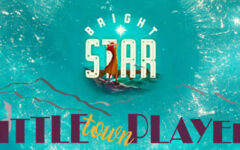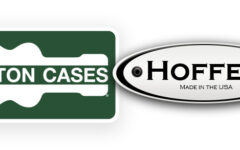 Two music business think tanks have come together after some research to present a five step plan for saving the industry. Music Ally and The Leading Question teamed up to conduct an 800 person, one year, study in the UK, studying music users acquisition habits. The researchers found a decline in the percentage of users who regularly purchased music, and no decline in music aquisition by those who downloaded from file sharing sites.
Two music business think tanks have come together after some research to present a five step plan for saving the industry. Music Ally and The Leading Question teamed up to conduct an 800 person, one year, study in the UK, studying music users acquisition habits. The researchers found a decline in the percentage of users who regularly purchased music, and no decline in music aquisition by those who downloaded from file sharing sites.
[Music fans] might buy a few tracks from iTunes when they get a new iPod for Christmas, but few go on to become regular paying downloaders. The statistics are obviously worrying, but the research does offer clues as to how fans who merely dabble can be encouraged to engage fully with licensed digital music services.
That according to Tim Walker, managing director of The Leading Question.
Here are the five steps these two companies are recommending.
1. Music needs to be bundled with other products and entertainment packages: Value can be created from many other ways than consumers simply buying the occasional download. Music needs to move away from per unit sales and become more of a service than a product. It should be pre-loaded into devices, bundled with mobile tariffs, offered as part of TV/Entertainment/ISP packages.
2. Labels needs to experiment with new release schedules and formats: The old model of single and album releases has run its course. Labels needs to be more innovative if they are not to be freezed out altogether. Look at the likes of Radiohead, Nine Inch Nails and Prince and experiment with new and varied formats, new pricing models and release schedules, digital only releases and promotional partnerships with brands.
3. Free doesn’t mean no money: The music industry should not fear free. It needs to embrace it. The culture of the net is free or at least feeling free. But money can still be made from other sources: everything from advertising supported services, to brands paying for an association with the artists to newspapers paying for giveaway CDs.
4. Change the charts: The Charts don’t make much sense anymore. Now that fewer and fewer people are buying music the charts need to reflect the other ways that people are consuming music.
5. Trust the DJ: Online means anyone can access or own John Peel’s entire record collection, but the instant and massive availability of music on demand means you need a trusted guide like John Peel more than ever. The new layers of value will come from the social connections that come about through music as much as from the music itself.
How does this work for Bluegrass?
1. The latest bundling product that I’ve seen in bluegrass is The Infamous Stringdusters’ new CD being bundled with a live CD download. This isn’t really a bundling with a non-music product, but it’s a step in that direction.
2. I’ve been saying for some time now that bands should semi-abandon the 12-track CD for releases. Write 2 or 3 good songs, go in the studio, record them and release them as digital downloads. Once you’ve done that 5 or 6 times, then compile them together into a 15-track CD for those that didn’t download. The problem with this model would be missing out on IBMA album awards. IBMA would need to adjust it’s awards to suit the new model.
3. This is tricky for bluegrass. The market is realatively small and it will be difficult for bands/labels to entice advertisers/sponsors to foot the bill. I’d like to see someone pull this one off though. I remember hearing about a rap artist that partnered with Sprint. Sprint paid a healthy sum to occupy the album artwork on a couple mp3s that were then given away. Every time someone pulled that song up in iTunes or on an iPod the Sprint ad was displayed where the ablum artwork would normally appear. Interesting idea…
4. I think sales charts are still useful, but shouldn’t be the only ones we consult. Radio airplay is important, and let’s include the major online stations in that chart. Maybe a chart built on iLike somehow?
5. Again, charts such as airplay and iLike would help users find music they might like because of recommendations from people they trust.
Any additional thoughts?







